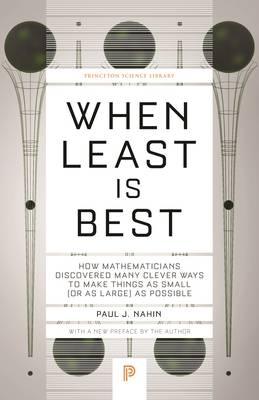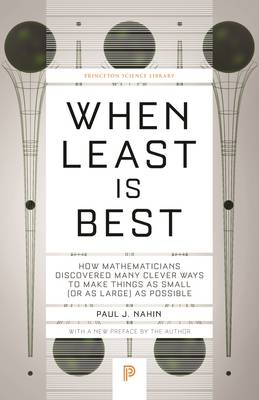
- Retrait gratuit dans votre magasin Club
- 7.000.000 titres dans notre catalogue
- Payer en toute sécurité
- Toujours un magasin près de chez vous
- Retrait gratuit dans votre magasin Club
- 7.000.000 titres dans notre catalogue
- Payer en toute sécurité
- Toujours un magasin près de chez vous
When Least Is Best
How Mathematicians Discovered Many Clever Ways to Make Things as Small (or as Large) as Possible
Paul Nahin
24,95 €
+ 49 points
Description
A mathematical journey through the most fascinating problems of extremes and how to solve them
What is the best way to photograph a speeding bullet? How can lost hikers find their way out of a forest? Why does light move through glass in the least amount of time possible? When Least Is Best combines the mathematical history of extrema with contemporary examples to answer these intriguing questions and more. Paul Nahin shows how life often works at the extremes--with values becoming as small (or as large) as possible--and he considers how mathematicians over the centuries, including Descartes, Fermat, and Kepler, have grappled with these problems of minima and maxima. Throughout, Nahin examines entertaining conundrums, such as how to build the shortest bridge possible between two towns, how to vary speed during a race, and how to make the perfect basketball shot. Moving from medieval writings and modern calculus to the field of optimization, the engaging and witty explorations of When Least Is Best will delight math enthusiasts everywhere.Spécifications
Parties prenantes
- Auteur(s) :
- Editeur:
Contenu
- Nombre de pages :
- 406
- Langue:
- Anglais
- Collection :
- Tome:
- n° 114
Caractéristiques
- EAN:
- 9780691218762
- Date de parution :
- 18-05-21
- Format:
- Livre broché
- Format numérique:
- Trade paperback (VS)
- Dimensions :
- 140 mm x 211 mm
- Poids :
- 362 g







